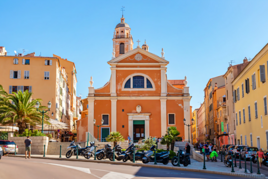Incudine
Incudine | |
|---|---|
City | |
From top, left to right: Classic Incudine-style church, Saint-Row; Port of Incudine; Francesco Federica International Airport; Incudine Solarian Bathhouses; The City Hall | |
| Country | |
This article is incomplete because it is pending further input from participants, or it is a work-in-progress by one author. Please comment on this article's talk page to share your input, comments and questions. Note: To contribute to this article, you may need to seek help from the author(s) of this page. |
Incudine is the capital and largest city in Vitruvia. It has an area of 359.9 km2 (139.0 sq mi) and a population of 989,390. It is located at the mouth of the River Abélard, in south-central Vitruvia at the far southern end of the Euclean continent. It is the southern-most capital city in Euclea. It is the nation's financial and cultural centre, with the nation's government instead being centred around the city of Castellu.
Etymology
The origin of the name "Incudine" is relatively modern in comparison to the history of the city. Originally, preceeding the 11th century, the city was called "Novudistrittu" after the Solarian name for the settlement "Novaregio" meaning "New Region" or "New District".
The first mention of any name relating to the modern one was in the mid to late 11th century, when the Solarian name began to be used less and the name "Incusine" began to be used in legal documentation from the local council. "Incusine" translates to "Anvil", which derrives from the industrial heritage of the city. The city was nicknamed "Cidade do Trabalho" by the Luzelese, meaning "City of Labour".
History
Antiquity
The Ride Bella Lagoon has attracted human inhabitants since the paleolithic era. The first known settlements date back to around the third century B.C during the period of Piraeanisation under the Piraean Territories. During this time, the settlement was originally known as "Kefálipotamón" and was an important urban centre for the peninsula, providing the empire with fish, minerals and locally sourced products.
Between the second and fifth centuries the city was under the domain of the Solarian Empire. Archaeological evidence shows that Incudine once sat upon a large natural spring which is the reason for the presence of Solarian baths.





